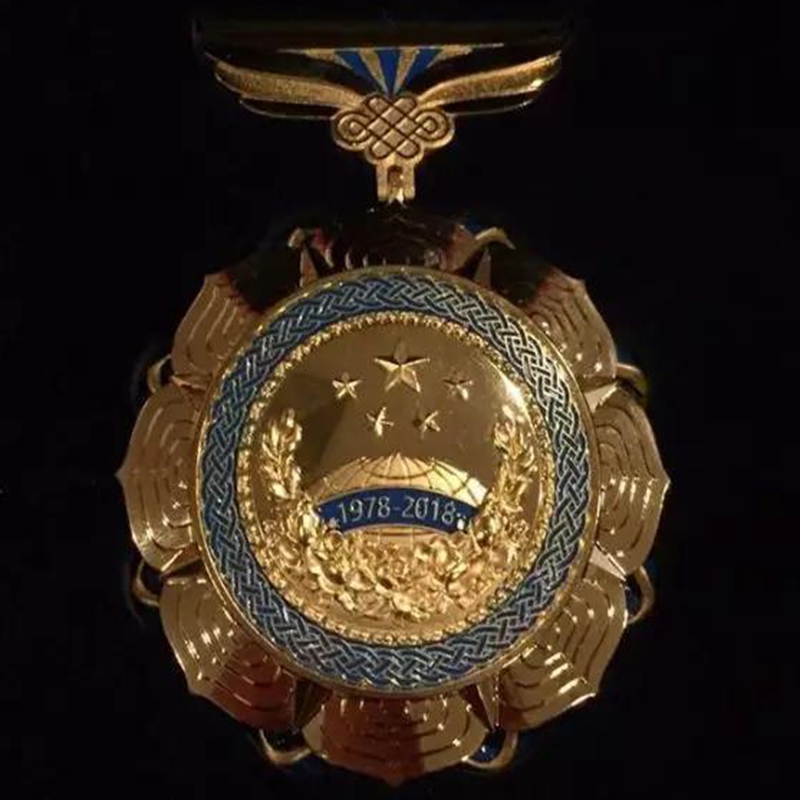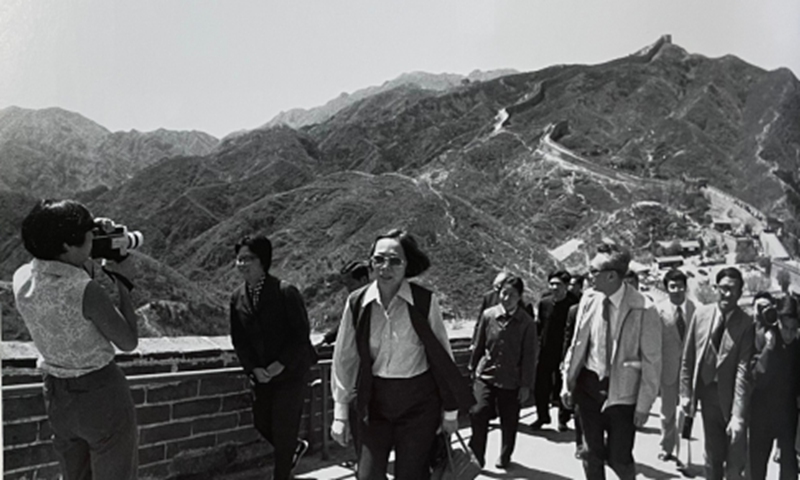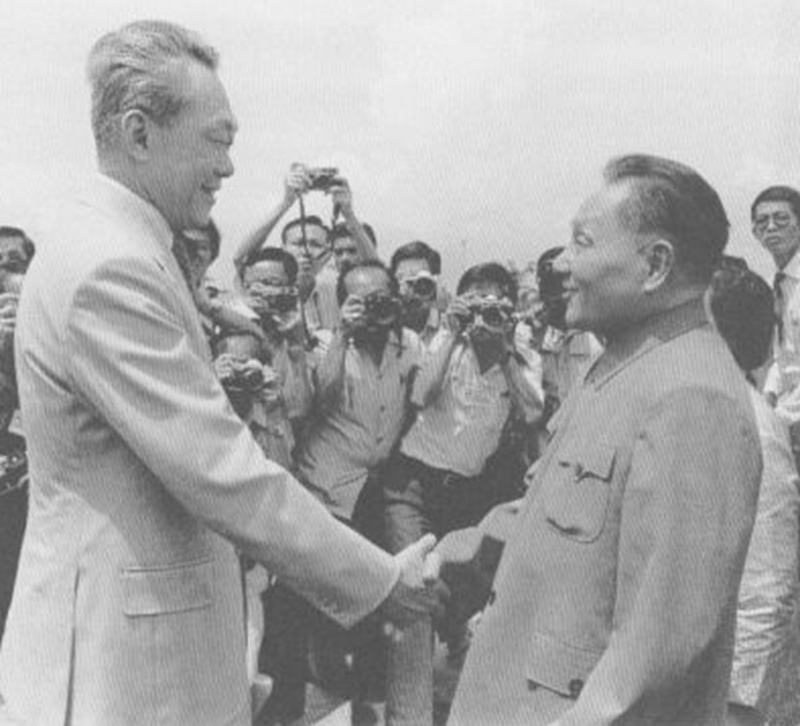Lee Kuan Yew on China: 'It will do it its way.'

Editor's Note: To celebrate the 100th founding anniversary of the Communist Party of China, we are launching the "100 CPC Stories in 100 Days" series, featuring foreigners who witnessed and participated in the CPC's history and helped the world better understand the CPC. The following is the 50th story of the series.
Lee Kuan Yew, the founding father of modern Singapore, was one of the few world leaders who had met with all generations of the Chinese leadership. It was in 1976 when he first led a delegation to China. Over the following 39 years, he visited China on a regular basis, and met with and exchanged views with Chinese leaders from Mao Zedong, Deng Xiaoping, Jiang Zemin and Hu Jintao to Xi Jinping, making a major contribution to promoting high-level engagement, political trust and economic cooperation between Singapore and China. On December 18, 2018, the Central Committee of the Communist Party of China and the State Council awarded him the China Reform Friendship Medal. President Xi Jinping said that Mr. Lee Kuan Yew was an old friend of the Chinese people, and the founder, pioneer and promoter of China-Singapore relations. Together, Mr. Lee Kuan Yew and the elder generation of Chinese leaders set the course for China-Singapore relations. He had made significant contributions to deepening the friendship between the two peoples and expanding cooperation between the two countries.


Given his special bond with China, after stepping down as Prime Minister of Singapore at the end of 1990, Lee Kuan Yew often shared his understanding of China with the international media and at various forums and symposiums. Former Vice President of the United States Al Gore believed that anyone who seeks a view on China should ask Lee Kuan Yew. He said that Lee Kuan Yew, who knew the leaders in Beijing, was a man playing a critical role.
So what was special about Lee Kuan Yew's view on China? In 2013, he published his book, One Man's View of the World, which reveals many of his insights on the international situation, with a large part on China.
He understood that China was different, and wrote about this in his book. "For 5,000 years, the Chinese have believed that the country is safe only when the centre is strong. A weak centre means confusion and chaos ... Every Chinese understands that. It is their cardinal principle ... Some in the West want to see China become a democracy in the Western tradition. That will not happen ... China is a vast country of 1.3 billion people with a different culture and a different history. It will do it its way."
Also in the book, he invited readers to think from China's perspective. "In time, I see the Chinese striving to keep their eastern seaboard free from American spying. At the moment, Americans are able to come as close as 12 miles from the Chinese coast and look in. Now, just imagine the reverse. If the Chinese navy and airforce - its aircraft carriers - were to come that close to the American coast, the Americans would find it intolerable. They would never allow it. So you can imagine how the Chinese feel."
When there was much talk of a "China threat," Lee Kuan Yew chose to speak out. He asked, "Even though the economy's annual growth rate has been 8% to 9% for the last five years, India's peaceful rise hasn't led to unease over the country's future. Instead, Americans, Japanese and western Europeans are keen to invest in India, ride on its growth and help develop another heavyweight country ... Why has China's peaceful rise, however, raised apprehensions?"
Such was but a snapshot. Lee Kuan Yew's observation about China is unique because it's not binary — praise vs. criticism. It is based on a true understanding of China and rare sense of objectivity. He never went out of his way to compliment China, but nonetheless became a dear friend of the Chinese people, because understanding, which is not necessarily about praising, but is what really matters.
This reminds people of an anecdote about his first meeting with Deng Xiaoping. On November 12, 1978, Deng Xiaoping was visiting Singapore. Before the meeting began, Lee Kuan Yew, recalling he once saw spittoons in the Great Hall of the People on his previous visit to China, asked to have one beside Deng Xiaoping's seat. He also knew that Deng Xiaoping smokes. Though smoking in air-conditioned rooms was not allowed in the Presidential Palace, Lee Kuan Yew put an ashtray in a conspicuous place and told Deng Xiaoping that he could smoke if he wanted. But throughout the whole evening, Deng Xiaoping did not smoke or used the spittoon, because he knew from news reports that Lee Kuan Yew was sensitive to the smell of cigarettes.

The story might not be as illustrious as the many great achievements of China-Singapore relations in the past several decades. But it is a manifestation of what underpins the ties between the two countries — mutual understanding and mutual respect. It holds the key to both inter-personal bonds and state-to-state relations. And this is what makes Lee Kuan Yew, the founding father of the Republic of Singapore, "an old friend of the Chinese people" — understanding and respecting China.
- Data shows China's water governance achievements
- Notable progress in China's water management
- All-China Women's Federation sends much-needed relief supplies to Xizang
- More aftershocks expected following deadly Xizang earthquake
- HKSAR chief executive mourns victims of Xizang 6.8-magnitude quake
- Milestones in China's high-speed railway development





































